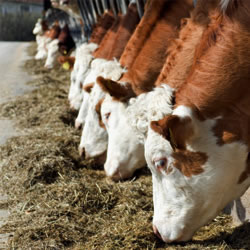Stakeholders have said that inflation and supply constraints leave room for reforms while lauding the Ministry of Livestock Development for restoring confidence and profitability to the sector within a year.
In separate phone interviews with The PUNCH, stakeholders, including the Miyetti Allah Cattle Breeders Association of Nigeria and the Commercial Dairy Ranchers Association of Nigeria, identified that the ministry had recorded gains in the sector from grazing reserve development to increased stakeholders’ engagement.
President Bola Tinubu established the Livestock Development Ministry on July 9, 2024. On June 1, the ministry celebrated World Milk Day, gathering dairy and livestock stakeholders.
The National Secretary of MACBAN, Aliyu Gotomo, said the ministry under the Tinubu administration has stabilised the sector, noting, “The creation of the livestock ministry has brought a lot of confidence in the business and has brought a lot of profit. Even though prices have gone up and inflation is high, people are still buying cattle, sheep, goats and especially rams in preparation for Sallah.”
Gotomo noted a 33 per cent increase in the price of rams compared to 2024, with prices rising from an average of N150,000 to N200,000 for a standard sacrificial animal. Meanwhile, prices now reach up to N1m in some regions.
The PUNCH reported that inflationary forces have slowed ram purchases by Nigerians preparing for the 2025 Eid al-Adha (Sallah) festivities.
Meanwhile, Gotomo credited the livestock development minister Idi Maiha for creating an operating environment that could withstand the drop in livestock importation following border restrictions from the Niger Republic, one of Nigeria’s traditional livestock sources.
“The Minister of Livestock Development has brought a lot of stability. We cannot buy animals from Niger Republic to Nigeria. Regardless, our people are having enough to buy,” Gotomo explained. “But it is a good lesson for Nigeria that we have animals to feed ourselves and even export.”
He commended Maiha for facilitating growth, stating, “The minister’s policies are making people more confident, not only the Fulanis; other people are also embracing livestock production.”
Gotomo highlighted specific policies driving optimism in the sector, including the development of grazing reserves, improved pasture and water infrastructure, and efforts to modernise abattoirs and expand market access.
He said, “Abattoirs are a major part of the cow value chain. Making them standardised will support multiple industries.”
He further pointed to the minister’s focus on the dairy industry, saying, “Millions of litres of milk are wasted daily because of a lack of processing capacity. The minister is tackling that.”
Similarly, the President of the Commercial Dairy Ranchers Association of Nigeria, Muhammadu Abubakar, stated that the ministry has provided hope rather than instant solutions.
“Two years of the Tinubu-led administration is too short to expect miracles,” Abubakar stated. “But we now have a ministry and, more importantly, a minister who understands the livestock business.”
He affirmed that Maiha’s technical team has developed a strategic framework for growth across all subsectors, including cattle, poultry, fishery, and dairy, and has been inclusive in stakeholder engagements.
Abubakar pointed to the recent World Milk Day celebration as evidence of the ministry’s unifying approach, noting, “All actors in the value chain, upstream, midstream, and downstream, were present. Everybody voiced expectations and concerns. That’s a major achievement.”
However, CODARAN’s president cautioned against unrealistic expectations, warning that “The livestock sector has suffered decades of neglect. We can’t expect a two-year-old ministry to fix everything.
However, he expressed hope that “policies are taking shape, and if implemented, we will see a transformed ecosystem within a few years.”
Both Gotomo and Abubakar urged the government to stay the course and ensure continuity in policy implementation to realise the full potential of the ministry’s interventions “The road is long. But we’re finally walking in the right direction,” he said.















